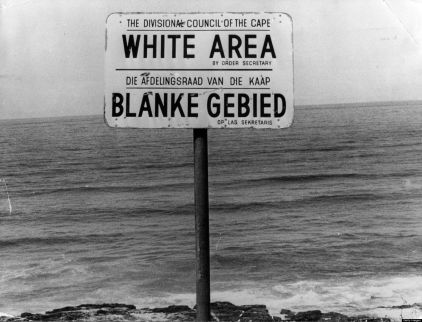This morning, while lying on the balcony tiles listening to music, I was contemplating my heritage. I chose this word deliberately to emphasise that some people did some stuff at some time in the past and the impact of their actions is quite a front line topic still in my identity as I see.
So let me introduce to you to this cultural inheritance of mine. It comes in the sections of (1) blood, sweat & tears, (2) guilt, (3) bonsai and (4) pride.
Blood, sweat & tears
Once upon a ship there were some guys (Dutch traders) sailing the high seas from Europe to India and beyond. The trip was a bit on the long side at the time and they couldn’t find any forecourts along the way to stretch their legs and buy crisps. So they built one and called it The Cape of Good Hope (translated). Today it’s called Cape Town.
Fast forward a bit and some other guys (British traders) came and took control of this lovely stop over. The traders and sailors who had eventually settled here weren’t such big fans of this and a small-scale war erupted. There was some road trips with wagons and oxen and by 1960 the Republic of South Africa was cited and settled.
Guilt
So far no mention of local African people, no problem – you could find them working as slaves and living as second class citizens from 1948 until 1994 under a regime called Apartheid, roughly meaning separation, which was run by the guys from section (1).
As with most of the African continent and other parts of the world, European settlers really made it their business to strike hard bargains (sometimes involving guns for instance) during the expansion and colonisation years. Even after South Africa gained independence the ruling group kept this mindset and pretty much nourished themselves on the tears of others.

Fast forward from then (only really needs a generation or three) and you will find that most South Africans of European descent are still wealthy in the context of the South African mean, still hold the best chance at a great education and in general have it easier.
Bonsai
“But this injustice shall not stand.”, the modern political parties say. “We will level the playing field, allow those previously disadvantaged and exploited to gain back their power and well-being and bring to life a new South Africa, the rainbow nation, where all live harmoniously and inequality is a thing of the past.”.
The execution of the above has filled many books and political speeches since, but in our current context the effect to highlight has been a pruning of the Afrikaans (child of the Dutch trader) heritage and culture to be more politically sensitive. You can’t really celebrate ‘that day we killed lots of other people whose children still live here’ without looking like a bad guy now can you.
When you are Afrikaans you tend not to have any European ties, your mother tongue is the youngest languages in the world and the result is your culture and heritage pretty much starts with a lot of bad news – which is history, but still young enough to feel recent.
Pride
So I am Afrikaans, one of a fairly rare breed, with a language specific to my country and a percentage of its population and an immature culture which has already seen some bits snipped off. Growing up has included a lot of guilt and confusion around identity and the relationships with those around me. Read without connection this paragraph could even describe my country as a whole I feel, as we continue to figure ourselves out.
But, I am immensely proud to be South African (: In the last 5 years I have been further exposed to our incredibly diverse populace, the gorgeous nature we are so lucky to live close to and also some of the struggles that other countries and people face around the world. I count my blessings and try to live a life that shows compassion and pride in the whole that is our nation.
The future
The reason I thought of this topic today was due to my nephew’s christening tomorrow (my family is protestant). I wonder what kind of world he will grow up in, even as I see it develop around us. I hope he will grow up proud of his identity, as part of this complex place we call home.
ƒ
This is part of my A to Z Challenge 2016, click the button at the bottom of the site for more information if you like.
Very interesting post, thank you for sharing! I look forward to reading the rest of your A-Z and your life and culture! Dropping by from https://sujataravi6.wordpress.com/ for the A-Z challenege!
LikeLiked by 1 person
Morning (: I’m glad you found it interesting! I’ll come take a peek on your side also, best of luck keeping up the steam all month.
LikeLiked by 1 person
First of all, intriguing title. 🙂 A satisfying peek into an interesting culture. Thank you. I enjoyed this one.
LikeLiked by 1 person
glad i could share (: i made it a bit childish dramatic, dunno if I’ll do that again though.
LikeLike